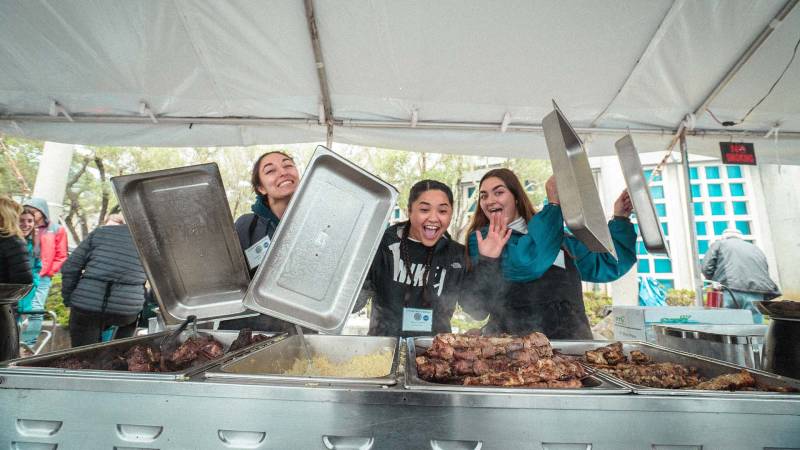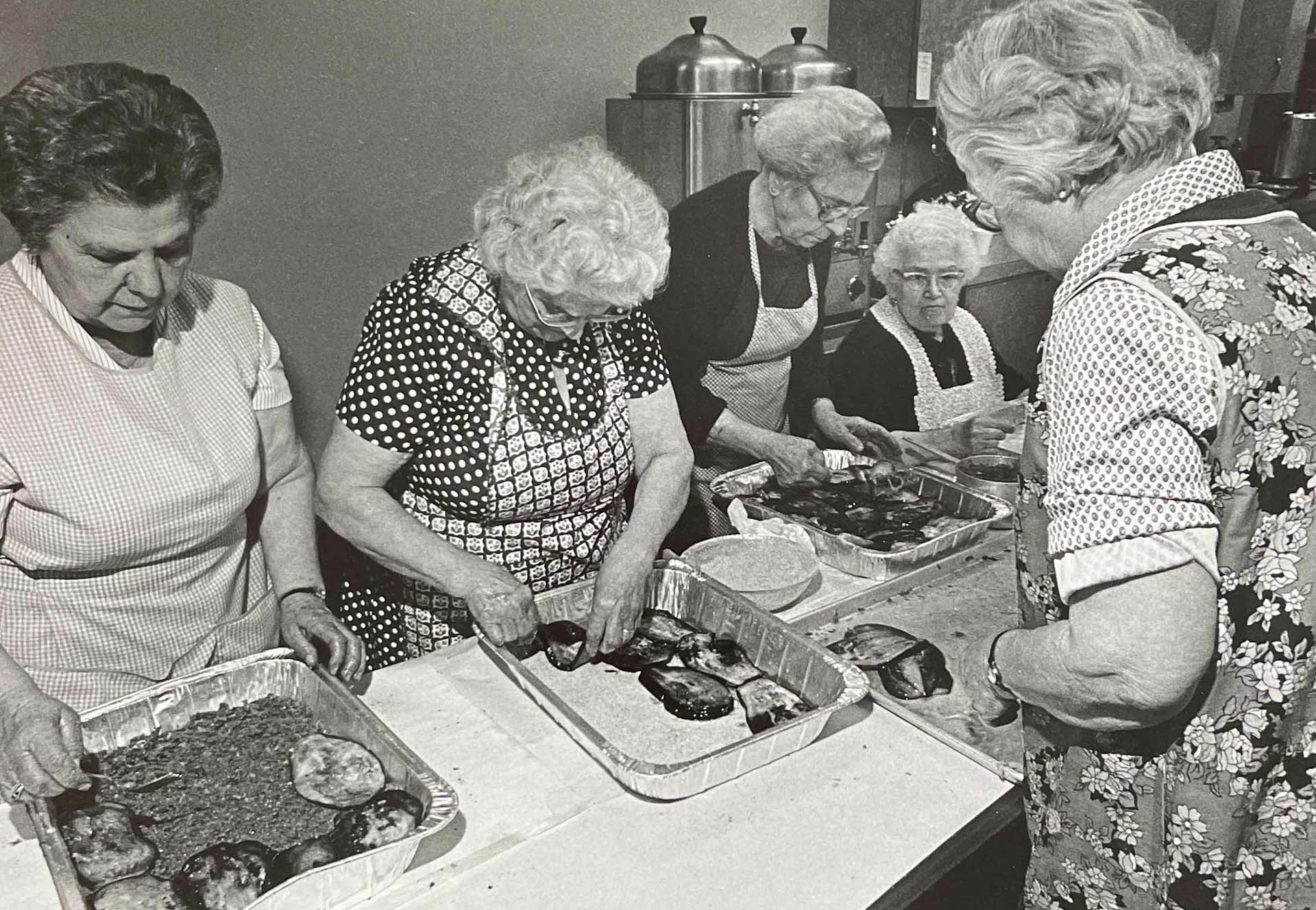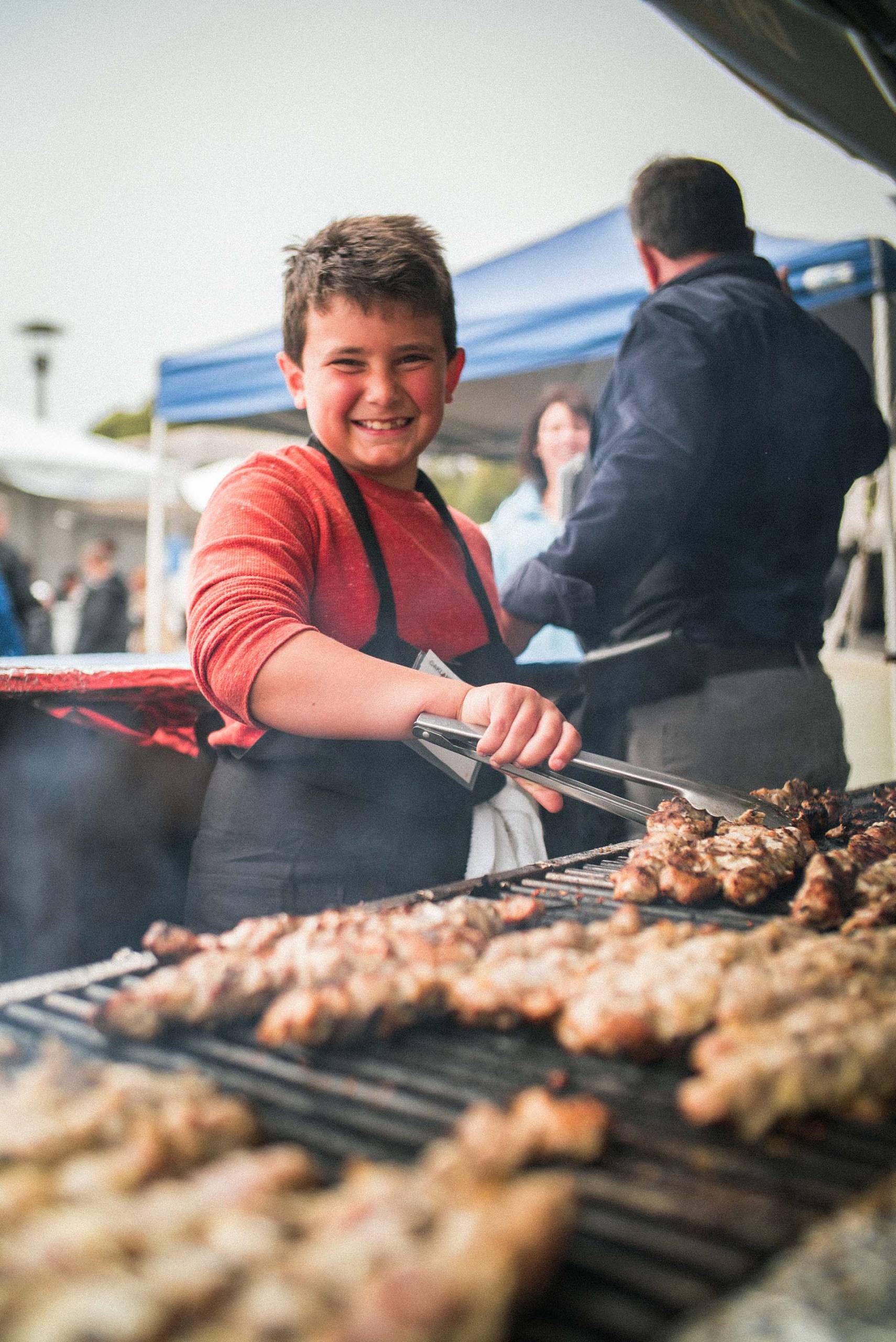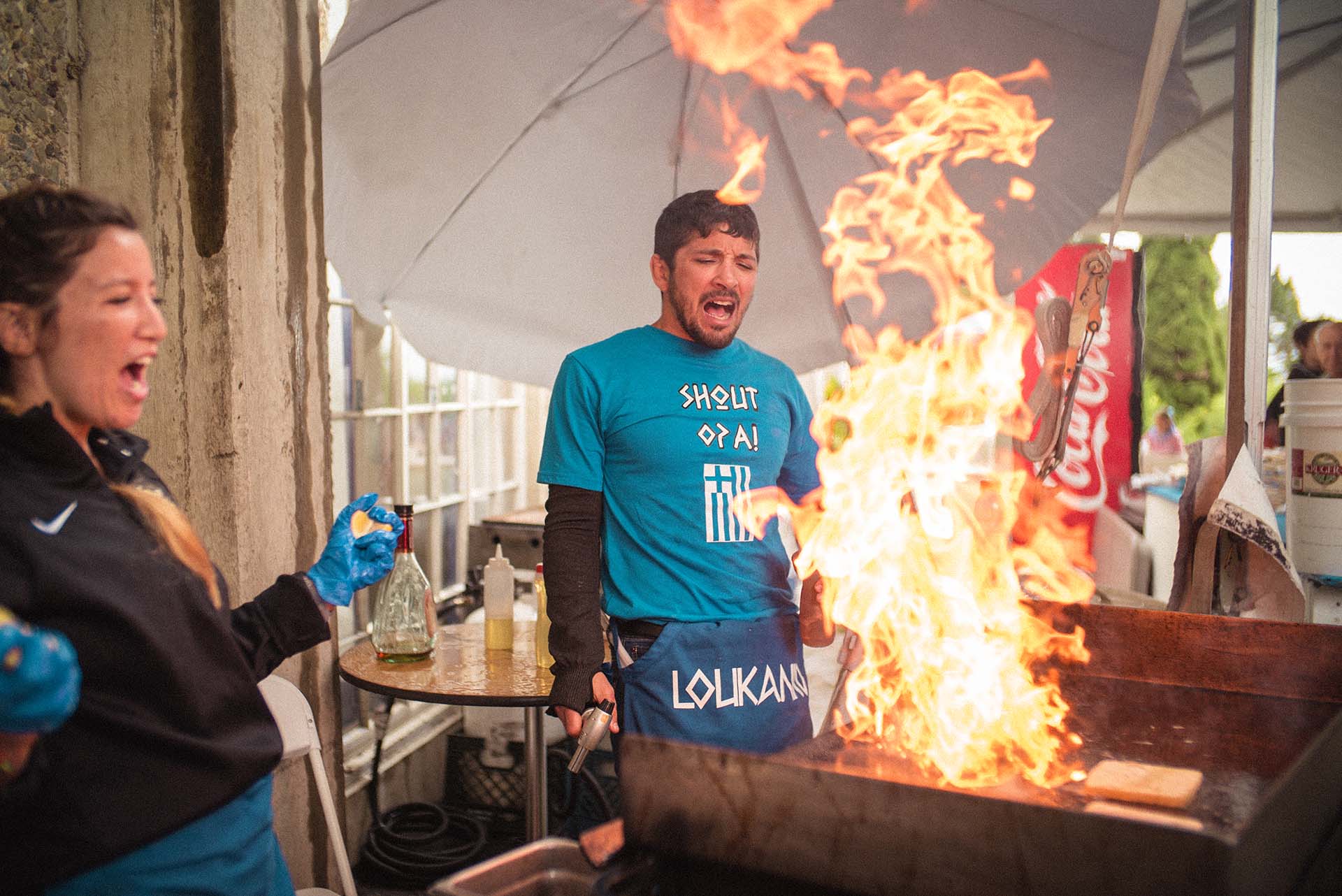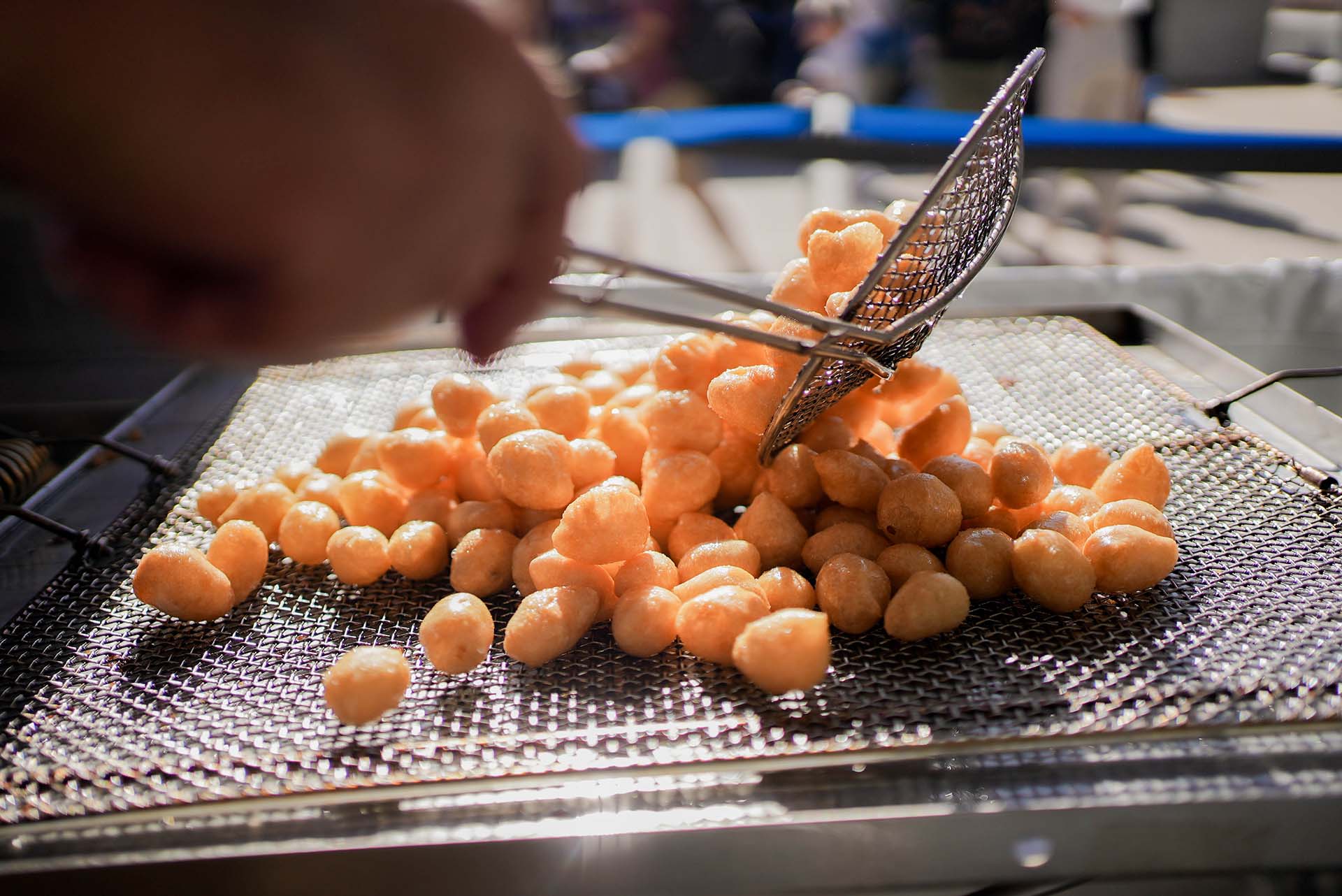Give me a choice between Michelin-starred fine dining and a big, immigrant-cooked church potluck, and I’ll choose the potluck nine times out of ten. That’s probably why I love the Oakland Greek Festival, the Greek Orthodox Cathedral of the Ascension’s flagship event: It’s essentially the biggest, liveliest church potluck you can imagine — an expression of the Bay Area’s multigenerational Greek community that’s infused with so much joy and down-to-earth hospitality. Not to mention the irresistible aroma of skewered meats and roast lamb you can smell from several blocks away.
The Oakland cathedral will host this year’s three-day lamb-stravaganza on May 17–19, but the festival’s history goes back more than 50 years.
Frosene Phillips, a spokesperson for the Oakland Greek Festival, remembers attending as a dancer when the event first started in the early ’70s. Back then, Phillips recalls, the festival was held at the old Oakland Civic Auditorium, near Lake Merritt. When the event debuted the first week of May in 1972, they called it the “Greek Week” — seven full days of music, folk dancing, food and wine, all in celebration of the church’s 50th anniversary in Oakland.
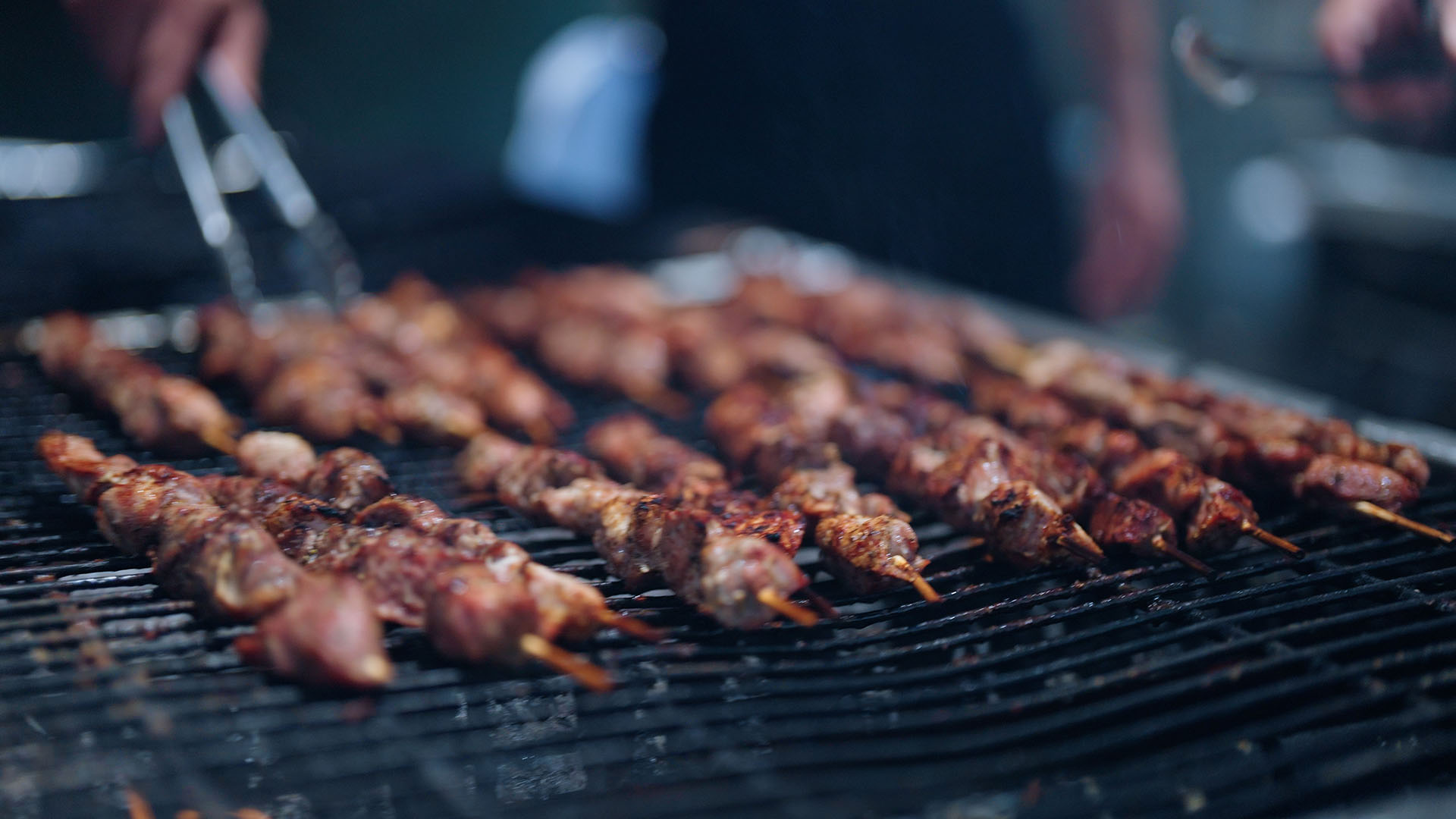
Eventually, the festival moved to the Cathedral of the Ascension’s own church grounds in the Oakland hills, where the event carried on year after year. They’ve only skipped it three times: once when the auditorium was under renovation, and then of course the first two years of the COVID shutdown, when all big public gatherings went on pause.
One of the first Greek food and culture festivals of its kind in the U.S., it became a model — the “mothership,” as Phillips puts it — for other similar church-affiliated Greek “bazaars” that sprung up around the Bay Area and beyond. As Phillips recalls, “Even Greek parishes from the East Coast would send people out to see what was going on in Oakland.”
